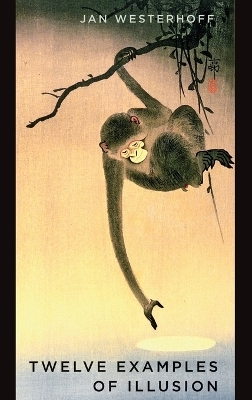
Twelve Examples of Illusion
Seiten
2010
Oxford University Press Inc (Verlag)
978-0-19-538735-3 (ISBN)
Oxford University Press Inc (Verlag)
978-0-19-538735-3 (ISBN)
The book is a popular discussion of different kinds of illusion from the perspectives of philosophy, cognitive science, and Buddhist thought. The book discusses examples of illusion (magical tricks, dreams, rainbows, reflections in a mirror) by following a famous Tibetan list of `twelve examples of illusion' from an 18th-century Buddhist encyclopedia.
Tibetan Buddhist writings frequently state that many of the things we perceive in the world are in fact illusory, as illusory as echoes or mirages. In Twelve Examples of Illusion, Jan Westerhoff offers an engaging look at a dozen illusions--including magic tricks, dreams, rainbows, and reflections in a mirror--showing how these phenomena can give us insight into reality. For instance, he offers a fascinating discussion of optical illusions, such as the wheel of fire (the "wheel" seen when a torch is swung rapidly in a circle), discussing Tibetan explanations of this phenomenon as well as the findings of modern psychology, and significantly clarifying the idea that most phenomena--from chairs to trees--are similar illusions. The book uses a variety of crystal-clear examples drawn from a wide variety of fields, including contemporary philosophy and cognitive science, as well as the history of science, optics, artificial intelligence, geometry, economics, and literary theory. Throughout, Westerhoff makes both Buddhist philosophical ideas and the latest theories of mind and brain come alive for the general reader.
Tibetan Buddhist writings frequently state that many of the things we perceive in the world are in fact illusory, as illusory as echoes or mirages. In Twelve Examples of Illusion, Jan Westerhoff offers an engaging look at a dozen illusions--including magic tricks, dreams, rainbows, and reflections in a mirror--showing how these phenomena can give us insight into reality. For instance, he offers a fascinating discussion of optical illusions, such as the wheel of fire (the "wheel" seen when a torch is swung rapidly in a circle), discussing Tibetan explanations of this phenomenon as well as the findings of modern psychology, and significantly clarifying the idea that most phenomena--from chairs to trees--are similar illusions. The book uses a variety of crystal-clear examples drawn from a wide variety of fields, including contemporary philosophy and cognitive science, as well as the history of science, optics, artificial intelligence, geometry, economics, and literary theory. Throughout, Westerhoff makes both Buddhist philosophical ideas and the latest theories of mind and brain come alive for the general reader.
Jan Westerhoff is Lecturer in Philosophy at the University of Durham.
INTRODUCTION; REFERENCES AND FURTHER READING
| Zusatzinfo | 123 color illustrations |
|---|---|
| Verlagsort | New York |
| Sprache | englisch |
| Maße | 239 x 163 mm |
| Gewicht | 578 g |
| Themenwelt | Geisteswissenschaften ► Religion / Theologie ► Buddhismus |
| ISBN-10 | 0-19-538735-X / 019538735X |
| ISBN-13 | 978-0-19-538735-3 / 9780195387353 |
| Zustand | Neuware |
| Haben Sie eine Frage zum Produkt? |
Mehr entdecken
aus dem Bereich
aus dem Bereich
Philosophische Betrachtungen
Buch | Softcover (2024)
Aufbau TB (Verlag)
12,00 €
Unterweisungen in Zen-Meditation
Buch | Hardcover (2024)
Arkana (Verlag)
20,00 €


